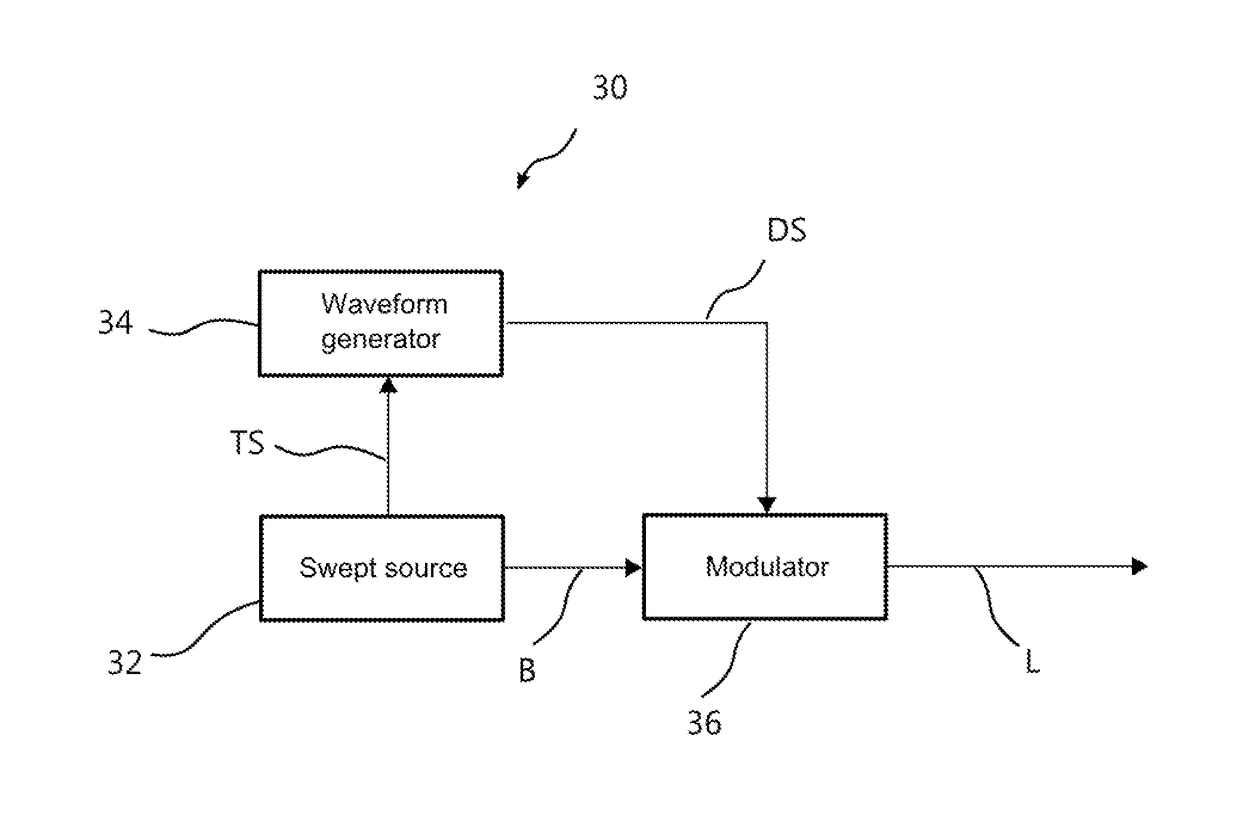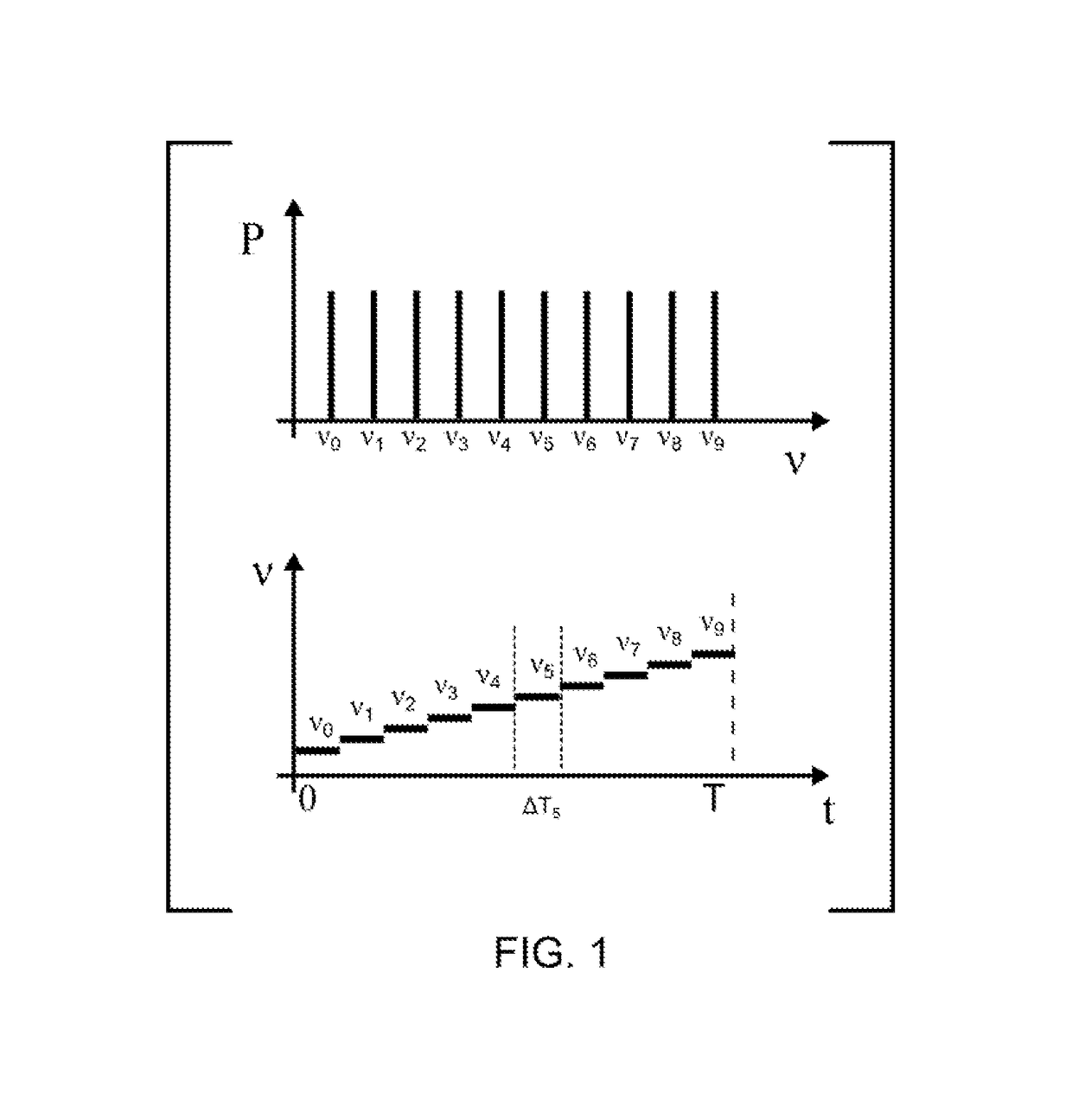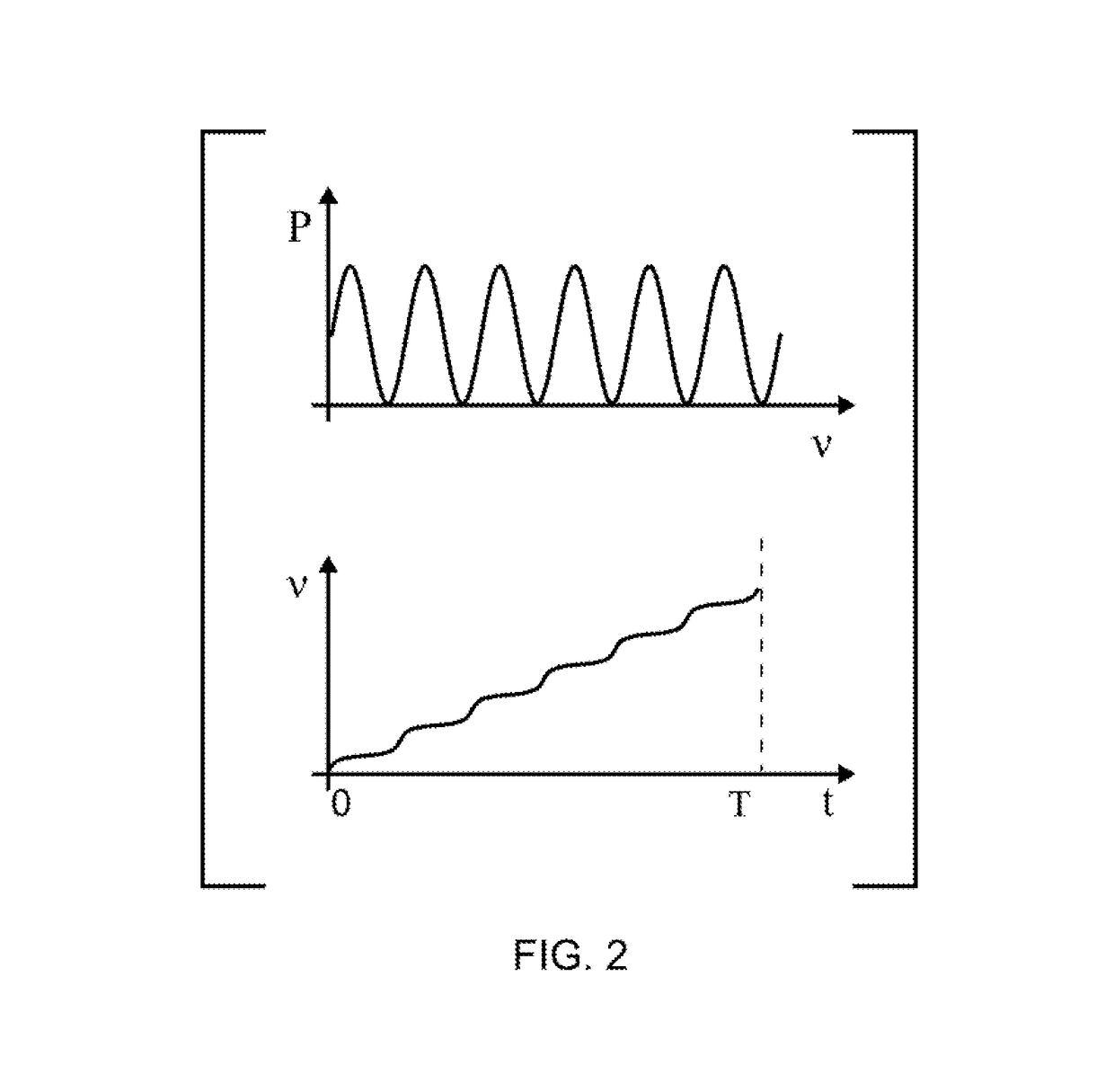Time-multiplexed spectrally controlled interferometry
a spectrally controlled, time-multiplexed technology, applied in the field of interferometry, can solve the problems of loss of light and mechanical complexity, coherent noise is one of the main sources of measurement errors, and the effect of reducing the number of errors
- Summary
- Abstract
- Description
- Claims
- Application Information
AI Technical Summary
Benefits of technology
Problems solved by technology
Method used
Image
Examples
Embodiment Construction
[0019]As used in this disclosure, “white light” is intended to refer to any broadband light of the type used in the art of white-light interferometry, typically having a bandwidth in the order of many nanometers. “Monochromatic” light, on the other hand, is intended to refer to any high-coherence narrowband light capable of producing high-contrast interference fringes within the entire measurement space of the particular apparatus utilizing such light as a source. For the purposes of this disclosure, a source is defined as “temporally coherent” if, at any given time, interference fringes can be detected within the measurement space of the interferometric apparatus used to implement SCI. With reference to light in general, the terms “frequency” and “wavelength” are used alternatively, as commonly done in the art, because of their well known inverse relationship. “Optical path difference” or “OPD” and “time delay” are used alternatively because of their space / time relationship in inte...
PUM
| Property | Measurement | Unit |
|---|---|---|
| wavelength | aaaaa | aaaaa |
| wavelength | aaaaa | aaaaa |
| wavelengths | aaaaa | aaaaa |
Abstract
Description
Claims
Application Information
 Login to View More
Login to View More - R&D
- Intellectual Property
- Life Sciences
- Materials
- Tech Scout
- Unparalleled Data Quality
- Higher Quality Content
- 60% Fewer Hallucinations
Browse by: Latest US Patents, China's latest patents, Technical Efficacy Thesaurus, Application Domain, Technology Topic, Popular Technical Reports.
© 2025 PatSnap. All rights reserved.Legal|Privacy policy|Modern Slavery Act Transparency Statement|Sitemap|About US| Contact US: help@patsnap.com



